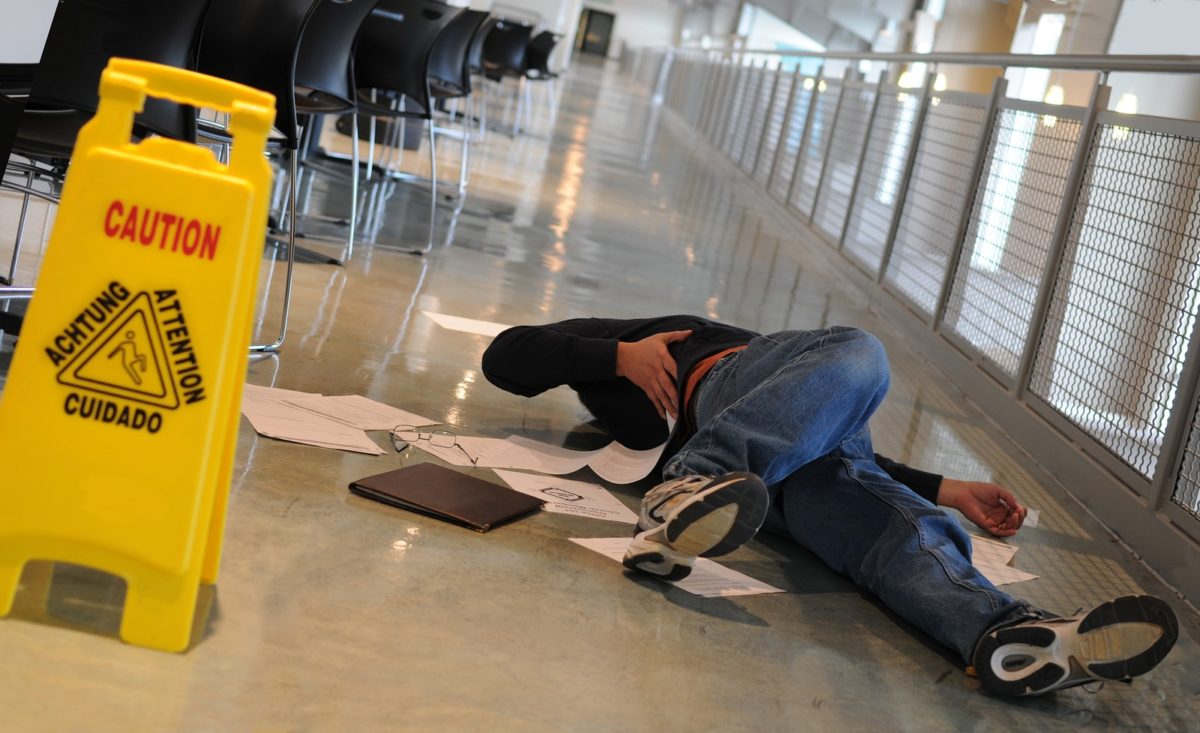
Premises liability is a legal concept generally applying to personal injury cases where the injury was caused by unsafe or defective condition on someone’s property. Personal injury cases are commonly due to negligence, and premises liability cases are no exception. In order to win a premises liability case, the injured person must prove that the property owner was negligent in regards to ownership and/or maintenance of the property. Generally, negligence means that the property owner failed to use reasonable care in connection with the property.
Simply because an individual was injured on someone’s property or the property was in an unsafe condition does not automatically mean that the property owner was negligent. One must prove that the property owner knew or should reasonably have known that the premises were in an unsafe condition, and still failed to take proper steps to aide the situation.
These are a common cause of General Liability insurance claims for businesses. Let’s take a further look at the types of premises liability claims and what businesses like yours can do to stave them off.
Types of Cases
Premises liability cases include a wide range of scenarios. Personal injury cases that can be classified as premises liability cases include:
- Slip and fall cases
- Snow and ice accidents
- Inadequate maintenance of the premises
- Defective conditions on the premises
- Inadequate building security leading to injury or assault
- Elevator and escalator accidents
- Dog bites
- Fires
- Water leaks or flooding
- Toxic fumes/chemicals
In general, if an injury occurs on your business’s premises and it can be proven that the injury occurred as a result of negligence on your part, you could be held liable for damages.
Examples of Cases
Slip and Fall
These are the most straightforward premises liability cases, occurring when an individual slips or trips and falls on someone else’s property. This is a very common occurrence, particularly in the winter months when people track in rain and snow, causing wet floors. Some common conditions that can lead to a slip and fall are:
- Defective staircases
- Accumulation of ice or snow
- Wet/oily floors
- Hidden extension cords
- Unsecured rugs or carpets
- Loose/broken floors, sidewalks, steps, or stairs
Fault in a slip and fall or injury accident at a store, restaurant, office building, theater or other place of business does not automatically fall with the business owner. In some instances, an accident can simply be just that; an accident.
If one customer leaves a mess which causes another customer to be injured, is the business owner or the other customer liable? Even if a customer is responsible for causing another customer injury, liability must still be investigated. Although, if the business owner had no knowledge of the potential hazard, or no reasonable expectation that to have been aware of the danger, then the injured party has no grounds to file a claim against the business.
Inadequate Building Security
These cases usually arise an apartment building or office. Owners of those buildings are responsible for securing access to the buildings. If someone breaks in, or simply walks in through an unlocked door, and assaults or kills someone inside the building, that person may have a premises liability case against the building owner if it can be shown that the building owner did not take reasonable steps to secure the building.
About Provident Protection Plus
At Provident Protection Plus, we have served the businesses and residents of New Jersey, New York and Pennsylvania for more than 65 years. We are a wholly owned subsidiary of Provident Bank, the region’s premier banking institution, and we are prepared to offer you personal, business, employee benefit, and risk management solutions. To learn more about our coverage options, contact our specialists today at (888) 990-0526.



